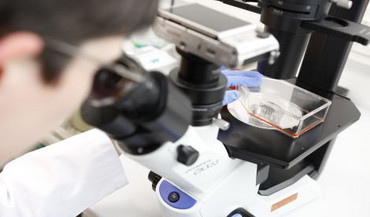Why is Pancreatic Cancer Research so Important?

The diagnosis of a malignant disease is always a pivotal incident for the affected person and his or her relatives. Given its extremely dismal prognosis, this is particularly true for the diagnosis of pancreatic ductal adenocarcinoma (PDAC). With approximately 17.000 new cases per year in Germany, PDAC is a relatively rare malignant disease. However, with a five-year survival rate of only 8%, nearly every PDAC patient succumbs to the disease, making PDAC one of the most aggressive solid malignancies. Novel diagnostic tools enabling tumor prevention or detection in early tumor stages as well as personalized therapeutic strategies have significantly improved the prognosis of many malignancies. Indeed, nowadays the growth and spreading of many tumors can be controlled and many cancer patients can be even cured from their disease. However, due to the lack of early warning symptoms and the unavailability of tools for early tumor detection, PDAC is predominantly diagnosed in advanced and incurable tumor stages.
Moreover, PDAC is characterized by a severe resistance against the most common chemotherapeutic treatment strategies. Consequently, PDAC represents one of the biggest challenges in the care and treatment of cancer patients. Despite significant efforts of clinicians and the PDAC research community, we still know too little about the tumor biology and the molecular backbone underlying the aggressive character of PDAC. Why do PDAC cells spread so early to distant organs? Why does the tumor recur so frequently, despite of its complete surgical removal? Why do patients respond differently to chemotherapeutic treatment? What are the molecular determinants of therapy responses? The answer to these and many additional questions lays somewhere in the cancer cell itself and in the interplay with its multifaceted tumor environment. The improvement of PDAC prognosis requires the disentanglement of these complex molecular PDAC features. Thorough, multidisciplinary and over-arching pancreatic cancer research, from in depth molecular analysis of the PDAC cell to clinical trials in PDAC patients, represents the only strategy towards a breakthrough in PDAC patient care and treatment.